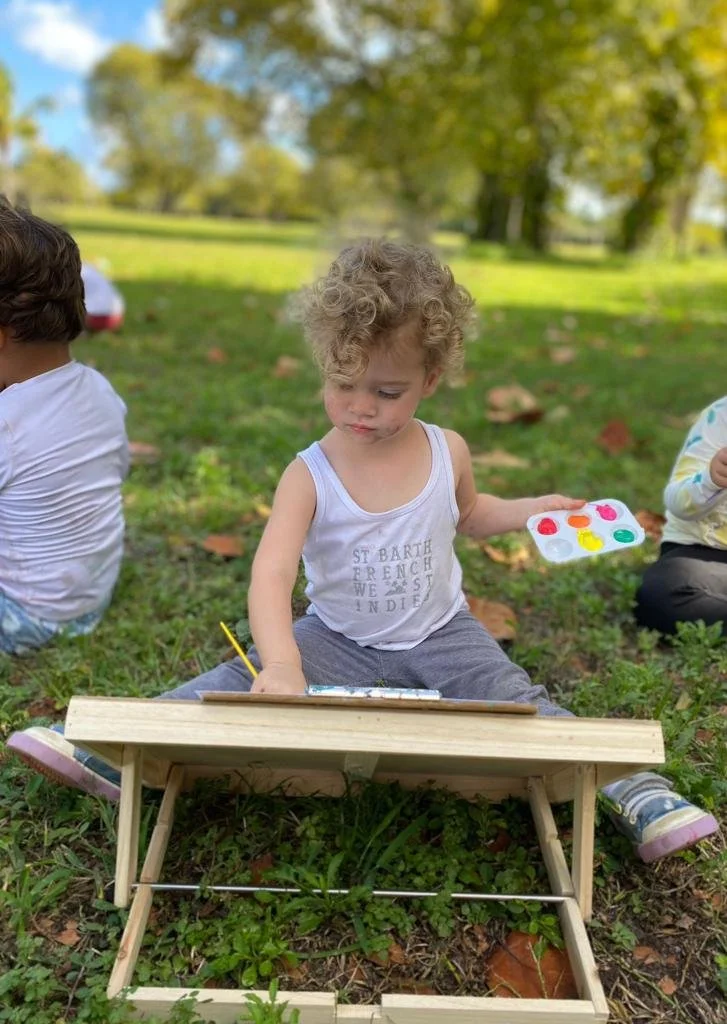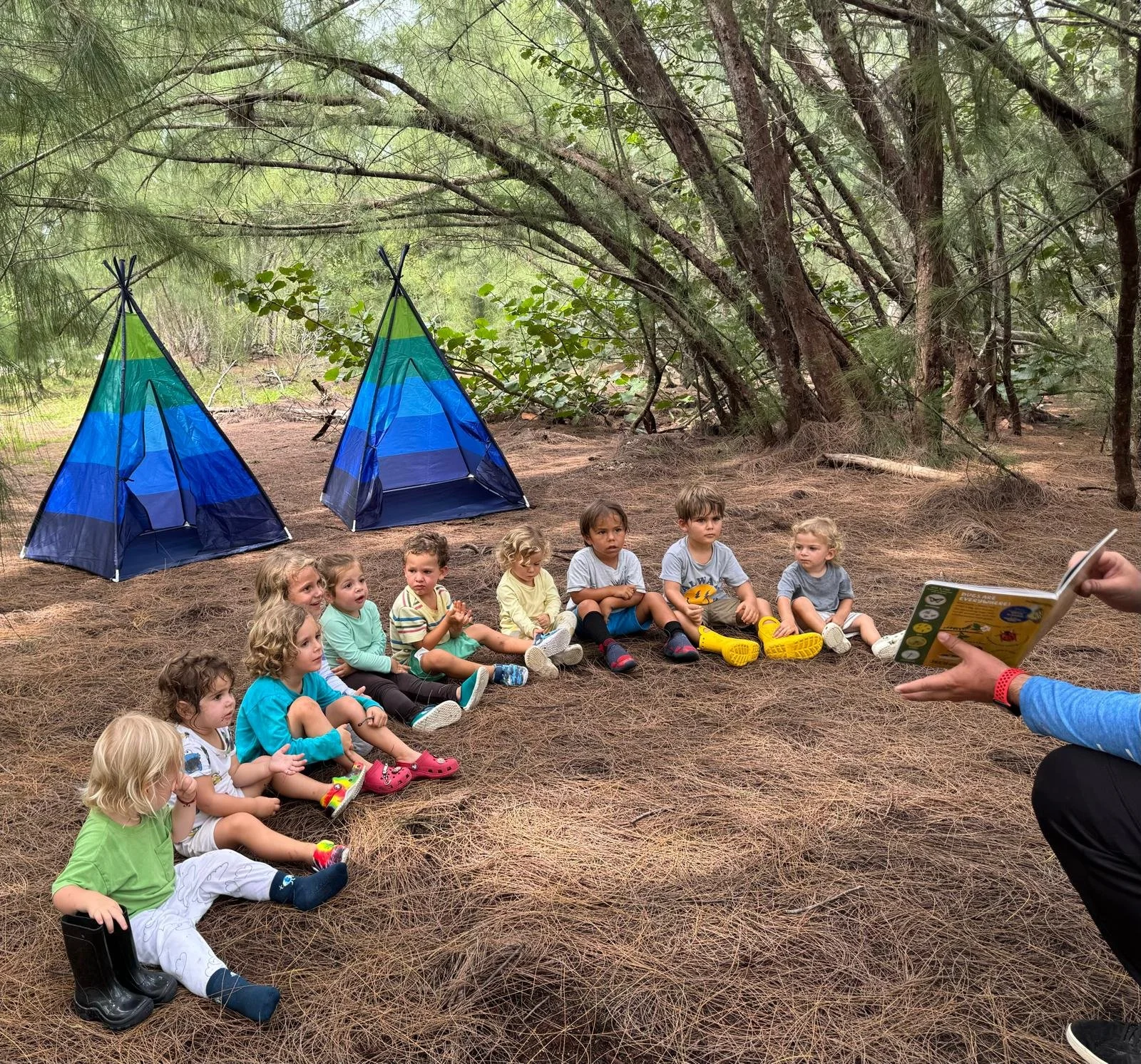A Day at Pachamama
9:00-9:15am ARRIVAL
9:30-10am
morning circle
Our day begins, singing, sharing,
and joining each other while taking individual turns to speak to the group.
trail snack
We gather for a healthy snack, getting our energy up to point and syncing our senses to everything around us.
10:00am
free unstructured play
Time to free our creativity, finding treasures around us, creating tools from sticks or rocks, climbing trees, or building a fort, possibilities are endless.
11:30am
stations/sensorial experiences
We engage in projects or activities nature related to focus, create, and develop specific skills. Setting up our different stations: Art, Music, Reading and Sports.
water breaks
This is a fun moment where no matter what we are doing, we pause to keep hydrated throughout the day.
clean up
Everyone gets ready to go, each one is independent and responsible for their backpacks and lunchboxes before leaving. We must be aware of leaving our space neat and clean.
12:30-12:45pm
pick-up walk
Time to walk our trail to our pick-up location, recharge energy and come
back the next day.
12:30-1:00pm DISMISSAL
〰️ Good morning dear earth 〰️ Good morning dear sun 〰️ Good morning dear rocks and the flowers every one...
〰️ Good morning dear earth 〰️ Good morning dear sun 〰️ Good morning dear rocks and the flowers every one...










